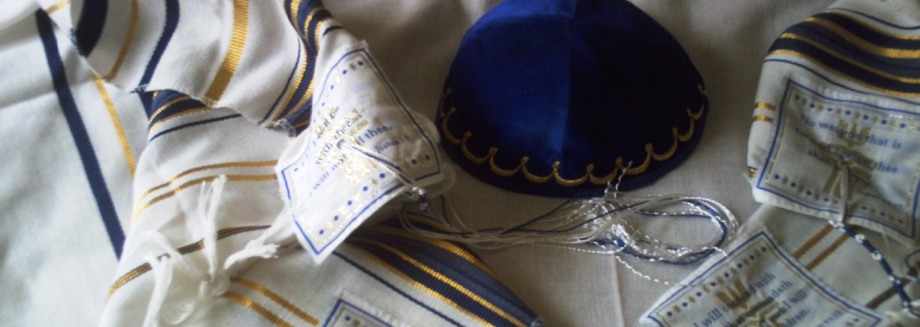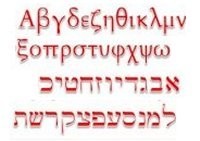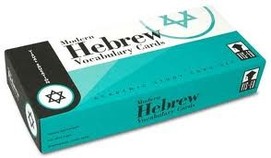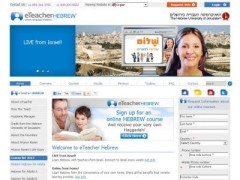
Learning Hebrew
Hints, Tips and Resources for Learning Modern and Biblical Hebrew
As an over-simplification, we can say that the Hebrew Scriptures (the "Old Testament") were primarily written in various forms of Hebrew and Aramaic, while the "New Testament" has been handed down in such a way that the main surviving texts are written in Koine Greek (pronounced 'kee-nay').
This web site has more information on the original language of Yeshua (Jesus) in our Messianic Yeshiva. This is where we discover that he and his first followers actually spoke Hebrew as their primary language, not Greek.
New and exciting texts and linguistic discoveries are being made in this, our generation, which are shining new light on the words of Messiah and his first disciples.
You don't, however, have to be a linguistic scholar yourself to benefit from these discoveries. You can read books on the subject, and even get a Bible with Strong's reference numbers and a Strong's concordance / lexicon / dictionary to help dive into the background text without having to actually learn the language at all.
But what if you do want to learn more about what the Rabbi's call the "language of heaven", the "language of the Kingdom" - Hebrew?
The First Hurdle
The first hurdle, and one which many people don't even get past, is the fact that Hebrew has an unfamiliar alphabet to English.
It is, of course, a Semitic language so has a different letter structure (containing 22 letters), to our Latin based language (containing 26 letters).
It's a shame that many people are put off by the letters themselves, as most of us wouldn't be phased by a 22-word spelling test and that's all it is, really.
You can download a block version of the Hebrew alphabet, which is most commonly used in printed materials, including newspapers, books, Bibles and Prayer Books and also a cursive alphabet, which is mostly used in hand-written communications.
Just click on the icon or link and your chosen Aleph-Bet will download automatically.
And for a final aleph-bet suggestion, if you ever get stuck in a slightly dull church service, turn to Psalm 119. As well as being the longest chapter in the Bible, each 8-line stanza starts with a different letter of the Hebrew alphabet: aleph, bet, gimmel, dalet, hey, vav...
...and your Bible will tell you what each letter is, so you can learn the Hebrew alphabet whilst looking very studious in the sermon!
Hebrew Alphabet Downloads
This is the alphabet commonly used in written Modern Hebrew...
Hebrew_Cursive_Lge.jpg
JPG image [36.5 KB]
This is the alphabet commonly used in bibles and printed Modern Hebrew...
HebrewBlockAlephBet.jpg
JPG image [6.7 KB]
Ready To Start Learning Hebrew?
Are you ready to begin? If so, now you need to decide whether you want to learn Biblical or Modern Hebrew (the aleph-bet is the same in either case, although the cursive text isn't used in Biblical Hebrew).
What's the difference?
Modern Hebrew has its roots firmly placed in Biblical Hebrew so there are many similarities. It is also, however, a living and vibrant language with new words, phrases and sayings being developed all the time. For example, in Biblical days there were no cars, so a word ("mechanit") had to be invented to describe these mechanical contraptions we use for increased mobility!
Put very simply, reading and understanding Biblical Hebrew is like trying to read and understand Chaucerian, or 'Middle' English (from the works and language of Geoffrey Chaucer, c. 1343-1400CE).
Take a look at the first six lines of the Wife of Bath's Tale, in its original Middle English:
Here bigynneth the Tale of the Wyf of Bathe.
1 In tholde dayes of the Kyng Arthour,
2 Of which that Britons speken greet honour,
3 All was this land fulfild of Fayerye.
4 The elf-queene, with hir joly compaignye,
5 Daunced ful ofte in many a grene mede;
6 This was the olde opinion, as I rede.
And this is the same text in Modern English:
1 Now in the olden days of King Arthur,
2 Of whom the Britons speak with great honour,
3 All this wide land was a land of Fairies.
4 The elf-queen, with her jolly company,
5 Danced oftentimes on many a green mead;
6 This was the old opinion, as I read.
The difference is not maybe quite so extreme in Biblical versus Modern Hebrew, but the principle is certainly the same.
That said, by learning Modern Hebrew you will be able to get more out of the Hebrew Scriptures, but by learning Biblical Hebrew you won't really get by too well in Israel today!
Some Personal Recommendations
Once you've made your choice, here are a few personal recommendations we can make to you based on our own real and actual experience of learning Hebrew:
Online Interactive Classes:
Our main experience has been with Hebrew Online, with whom you can choose to learn either Biblical or Modern Hebrew. You sign up to a terms worth of classes, and they charge you a monthly fee, which can be cancelled at any time.
You are sent a workbook and a headset with microphone and earphones, so all you need to do is log on to their website at a set time each week and you are then taught by an actual Israeli Hebrew teacher from Israel. Class mates may be from all around the world, depending on their time zones and how good they are at Hebrew.
This type of lesson is especially useful if you are not so disciplined that you can make yourself sit down and learn entirely on your own.
Online "Static" Learning:
There are several good web sites that offer a good educational resource for learning more about Hebrew, but the best one we've seen so far is Hebrew for Christians.
You know your requirements better than anyone, so it's probably best if you simply click on the links below and see what you think.
Audio CD Sets:
There are lots of different types of audio CD that you can buy, but after lots of trial and error, we can certainly recommend Before You Know It (BYKI), which works on an 'immersion' learning model.
You get a full range of learning environments to use on your computer, including flash cards, video scenes, written and oral skills, and even MP3 files for you to use on your iPod or other MP3 player.
It's very good value for money, but you do have to make time to ensure you are 'immersed' in the language, which means being at your computer a lot to get the most out of it.






